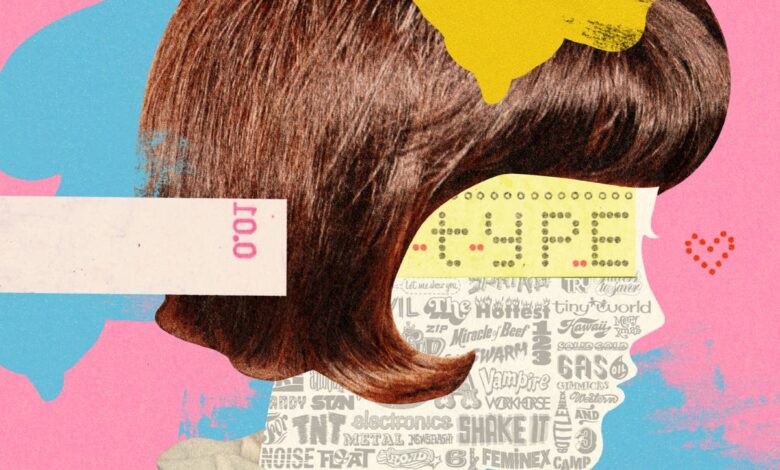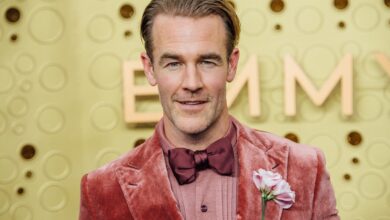Binge eating disorder took over my life

In the depths of lockdown, I would often joke with friends that I was addicted to Deliveroo. The lure of the aqua logo was all too much and I’d often fight the itch to flick through endless culinary options that awaited me. When life was so uncertain and the supermarket became a risky place to be, the ease of food delivery apps felt like a slice of certainty and provided much-needed comfort.
In the times – more often than not – that I’d cave and place an order, I’d go all out and add multiple items to the virtual basket: an average pizza became a large, one burger would become two or three, I’d add sides and a dessert. I didn’t hold back.
When it arrived, I’d sit alone in my bedroom and savour every bite. At that moment, I felt safe – euphoric even – and eventually, briefly, satiated. But the momentary high would precede a crashing low. A gut wrenching feeling of shame, guilt and self-hatred that I’d binged once again.
On occasion, I could keep these feelings at bay, instead nurturing the feeling of physical fullness in the hope that it would fill the emotional void. But it was always short lived. I’d then return to self-loathing and an aching feeling of loneliness in a vicious cycle that sucked me in like a tidal wave, and spat me right back out.
Like so many of us, when the world ground to a halt in March 2020, I felt a complete loss of control. Living in a house share in London, isolated from family, friends and my long-distance partner with little to do other than work long hours, walk endless laps around the park and flick tirelessly through Netflix’s catalogue, I was forced to face demons that I had once been able to keep at bay with the busy humdrum of normal life.
During those dark days of uncertainty, food was my comfort more so than ever before. I struggled to keep a sense of routine and in turn my days became centred on my next meal. It sowed the seeds for a difficult path, one that I’m still tentatively treading now.
When I could finally escape London and go and stay with my partner, I had assumed that my habits would straighten out. But it was too late. My penchant for binge eating had become ingrained long before Covid hit and now it was as much a part of my daily routine as brushing my teeth or logging on to my laptop from my makeshift bedroom desk. I’ve used food as an emotional crutch throughout my life, leaning to junk food for comfort during times of stress. It was an outlet I thought could be far worse, so I brushed it off as a guilty pleasure rather than any sort of problem that needed fixing.
When I realised I’d gained weight during lockdown, I turned to a fad diet. The back-and-forth between binge and dieting was a process I’ve gone through since my early teens, throwing myself from highly restrictive eating habits to often uncontrollable overeating. Given how entrenched fat phobia is in society, a restrictive diet felt far more normalised to me than the binges – I don’t know any woman who hasn’t restricted their eating in some form or other at some point in their life.
Research by Beat, The UK’s leading eating disorder charity, shows that 1 in 50 people will experience binge eating disorder (BED) in their lifetime. It’s more common than anorexia, but 47.7 per cent of those with BED report not being taken seriously when seeking professional help. Binge eating is an isolating illness that’s shrouded in shame and secrecy.
Martha Williams, a clinical advice coordinator at Beat, tells me that, “when someone thinks of an eating disorder, their mind goes to the image of a middle class, young female who is severely underweight. That is totally unrepresentative of the real picture and dismisses other people’s experiences. There are so many people living with eating disorders that are deemed a “healthy weight” or who are in larger bodies, but they are often invisible.”
Plus-size model Tess Holliday has been open about her experience with anorexia and the damaging association of eating disorders with skinny bodies. “When [the doctor] said anorexia, I laughed,” Holliday said. “I thought, ‘Do you see how fat I am? There’s no way that word could ever be attached to someone my size’”.
While dieting after a long stretch of binges, I experienced a severe amount of anxiety when I didn’t have access to the foods that I was used to eating; along with panic about deciding what to have for dinner, having to go and do a supermarket food shop or when cooking in front of others. It felt irrational at the time but in reality it represented the internal battle between allowing myself to eat the food that I wanted or to restrict myself.
The real distinction in this psychological tussle was the fact that this response was intrinsically connected with unhealed emotional trauma that I would later unpick with a therapist. Unbeknownst to me, my brain had learnt to binge in order to fulfil an emotional need that had not been met through other means. I was panicking at the prospect of losing the emotional crutch of food.
Williams describes disordered eating as a “sign of intense emotional distress”. She explains: “A lot of the time it’s not about the food, it’s about the feelings that are underneath. If you think about it as an iceberg, underneath all the water you’ve got those perfectionist traits, you’ve got anxiety, you’ve got difficult experiences and terrible things that have happened to you, and then you’ve got the bit that everyone else sees above the water, which is either addictions such as alcoholism, or an eating disorder.”
Something else that struck me as different from my friends’ experiences of dieting was the unbearable sense of shame I felt when I stopped dieting. When I eventually returned to London, my lockdown habits crept back in. Worse still, they had become even more overbearing due to the paralysing fear I felt when making decisions around food and I withdrew even further into bingeing. Soon, my fear of making the “wrong” choices around food became so severe that I stopped cooking altogether. Some days, I wouldn’t eat anything all day and then binge at night when I became hungry enough to give in. I was starving myself of physical sustenance, but emotional comfort too.
Therapy helped. I realised that when I was restricting myself, the part of me which relied on emotional eating felt betrayed and ashamed by the idea of bingeing being “bad”, because it’s the very thing that brought me comfort during my darkest hours. But my road to recovery wasn’t linear and my binge-eating actually worsened during the first year of therapy as I faced the fear of food being taken away. On top of that, getting to the root of the emotional trauma that caused the bingeing was difficult, and so comfort – which I sought from food – was needed more than ever before.
This was a jarring part of the process. Much like with other addictions, the moment you accept that you are a binge-eater can be the most problematic. It feels liberating and paralysing all at the same time – I knew that I was reliant on this troublesome coping mechanism, yet I was doing it even more. Eventually, I found that support from loved ones was transformative, and I found comfort in seeing other people opening up about what felt like a shameful disorder.
While I would never suggest anyone who experiences disordered eating should use TikTok as a go-to for health advice, I did find a community of creators on the platform who were openly talking about their struggles with binge eating, as well as expert voices in the field sharing their tips, to be a helpful medium when it came to accepting my own.
On an app dominated by brilliantly self-aware Gen-Zers – the content I found was a far cry from the weight loss obsessives or the people who deem someone like me lazy or weak. These people were recognising bingeing for what it truly was: a mental health issue. They bravely shared that the root of their relationship with food was psychological, and there was an unspoken strength in embracing this reality which I admired.
Binge eating was as much a part of my daily routine as brushing my teeth or logging on to my laptop from my makeshift bedroom desk
Now, my fading stretch marks represent silver linings, a reminder of how far I’ve come.





